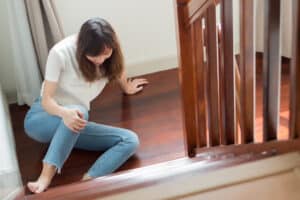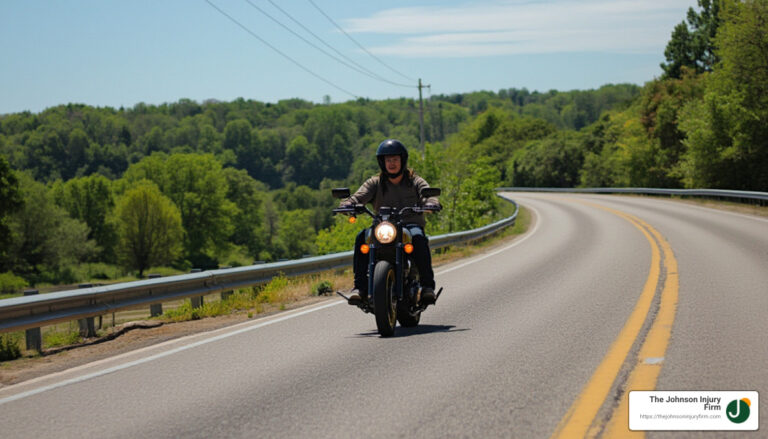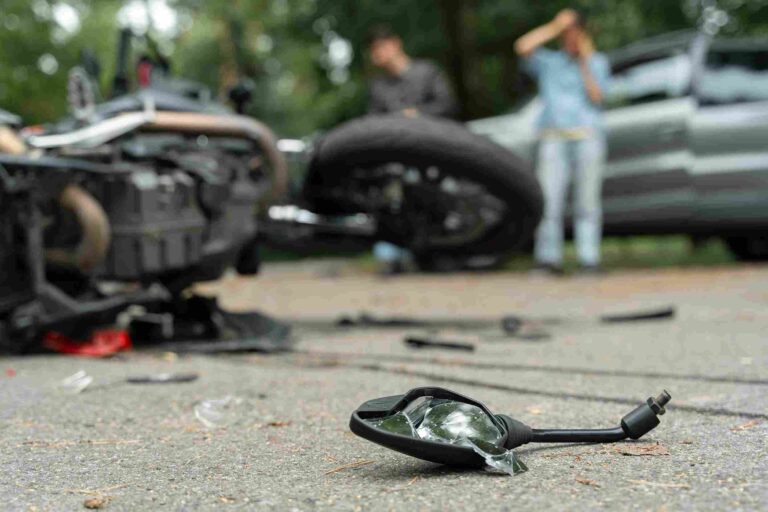
This is where things get tricky. Most people don’t want to file a claim against a friend. It feels awkward. But the reality is, injuries come with medical bills, lost wages, and sometimes long-term consequences. When your injury could have been prevented with a bit of care, someone needs to be held responsible—and the law provides a clear framework for doing just that.
As Richmond premises liability attorneys, we’ve handled many cases involving premises liability, including incidents at a friend’s or family member’s home. Let’s discuss how Virginia law treats these cases, your options, and how to move forward without turning a personal relationship into a legal battlefield.
What Is Premises Liability in Virginia?
Premises liability is the legal responsibility of a property owner or occupier to keep their property safe for others. This includes fixing known hazards, warning guests of dangerous conditions, and taking reasonable care to prevent injuries.
Virginia law divides visitors into three general categories:
- Invitees: These individuals are invited onto the property for business or mutual benefit (like customers in a store). Property owners owe invitees the highest duty of care.
- Licensees: These are social guests—people invited over for dinner, a party, or just to hang out. Property owners have a duty to warn licensees about known dangers, but do not have to inspect the property for unknown hazards.
- Trespassers: These are people on the property without permission. Owners owe them very limited duties, primarily to avoid intentionally causing harm.
You’re likely considered a licensee if you’re injured at a friend’s house in Richmond. That means your friend had a duty to warn you about known dangerous conditions, like a loose floorboard, a faulty handrail, or a slippery patio tile. If they failed to do that, and you were hurt, you may have a valid personal injury claim.
Common Types of Premises Liability Injuries
Injuries in home settings can vary widely, but some of the most common include:
- Slip and falls: Wet floors, icy steps, or uneven flooring are common culprits. Falls are one of the leading causes of injury in Virginia. According to the Virginia Department of Health, falls account for over 30% of unintentional injury deaths in the state.
- Dog bites: If your friend has a pet and fails to warn you about its aggressive behavior, they may be held responsible under Virginia’s “one bite” rule if you are bitten or injured.
- Deck or stair collapses: Poor maintenance, rot, or faulty construction can cause structural failures, especially during group gatherings.
- Swimming pool injuries: Drownings and slip-and-fall accidents near the pool often involve children and can lead to severe or fatal injuries.
- Fire or carbon monoxide exposure: Inadequate safety measures, poor maintenance, or code violations can put guests at risk.
These scenarios may justify speaking to a premises liability lawyer in Richmond, especially when serious injuries or the homeowner’s negligence are apparent.
Proving Liability: What You Need to Show
To hold someone liable in a premises liability case in Virginia, you must prove the following:
- Duty of care: The homeowner owed you a legal duty based on your status as a guest.
- Breach of duty: They failed to take reasonable steps to ensure your safety or failed to warn you of a known hazard.
- Causation: Their breach of duty directly led to your injury.
- Damages: You suffered actual harm—medical bills, lost wages, pain and suffering, or other damages.
These elements may seem straightforward, but often become contested, especially when insurance companies get involved. That’s why having a personal injury lawyer in Richmond on your side from the start can help you protect your rights.
Virginia’s Harsh Contributory Negligence Rule
Virginia follows the strict doctrine of contributory negligence. This means that if you are found even 1% at fault for your injury, you may be completely barred from recovering any damages. Most states allow for some shared fault, but not Virginia.
You saw the rotting deck board but walked on it anyway. Or maybe you were wearing slippery shoes on a wet patio. The defense may argue that your actions contributed to the incident, no matter how minor. This is one reason injury cases in Virginia are often aggressively defended—and why building a solid, evidence-backed case from the beginning is essential.
What to Do After an Injury at a Friend’s Home
If you’ve been hurt on someone else’s property, taking the proper steps early can protect your health and your legal rights.
- Get medical attention: Your health should be your top priority. This is crucial for your recovery, and medical records will serve as vital evidence.
- Document everything: Take pictures of the hazard and your injuries. If anyone saw what happened, get their contact information.
- Notify your friend: Let them know about the incident. This isn’t about accusing them—it’s about being clear on what happened and preserving your rights.
- Avoid making statements: Don’t admit fault, apologize, or speculate. These statements can be used against you later.
- Call a Richmond injury attorney: The sooner you speak to a lawyer, the better. We can help you understand your options and deal with any insurance company involved.
Homeowners Insurance: Why You’re Not Suing Your Friend Directly
Many people hesitate to file a claim because they’re worried it will damage their relationship with their friend. But here’s the truth: when we file a premises liability claim, we typically deal with your friend’s homeowners insurance, not your friend’s bank account.
Homeowners’ insurance usually covers:
- Medical bills
- Lost wages
- Pain and suffering
- Legal defense (for your friend)
Your friend has insurance for this reason—to protect them and their guests when accidents happen. You’re not attacking your friend; you’re simply using the insurance they pay for to cover your losses.
How We Can Help You
At The Johnson Injury Firm, we understand how personal injury law intersects with personal relationships. We’ve helped many clients navigate the uncomfortable situation of getting hurt at a loved one’s home. As a trusted Richmond injury attorney, we approach each case with compassion, discretion, and professionalism.
Here’s what we do for you:
- Investigate the facts of your injury
- Gather documentation and witness statements
- Deal with the insurance companies on your behalf
- Negotiate a fair settlement or take your case to court if necessary
Our team has experience with slips and falls, dog bites, pool injuries, and other forms of premises liability. Whether your injuries are minor or severe, we fight to ensure you get the compensation you need to heal and move forward.
When Should You Contact a Lawyer?
If your injury required more than just a bandage and some ibuprofen, it’s a good idea to call a lawyer. Even if you’re unsure whether your friend did anything “wrong,” we can evaluate the circumstances and advise whether you have a valid case.
Don’t wait too long. Virginia’s statute of limitations for personal injury claims is two years from the date of the injury. If you miss that deadline, you lose your right to seek compensation, no matter how strong your case might be.
Frequently Asked Questions
What if my friend doesn’t have homeowners’ insurance?
In that case, things become more complicated. We’ll investigate whether other sources of liability coverage exist (like renters insurance), and we’ll help you weigh whether it’s worth pursuing a claim.
Can I still recover damages if I was partially at fault?
Unfortunately, Virginia’s contributory negligence rule means you must be 100% free of fault to recover damages. This is why gathering strong evidence and working with an experienced attorney is so important.
What if the hazard was something obvious, like a wet floor?
Even if a danger seems “obvious,” you may still have a claim. It depends on whether the homeowner took reasonable steps to warn you and whether you could have realistically avoided the danger.
Do I have to sue my friend directly?
Most cases are resolved through insurance claims without ever filing a lawsuit. In rare instances when a lawsuit is necessary, we will guide you through the process and handle it professionally and respectfully.
How much compensation can I receive?
Compensation depends on your medical expenses, lost wages, pain and suffering, and the severity of your injury. We’ll calculate a fair value for your claim and fight to recover it.
Get the Support You Deserve from an Experienced Richmond Injury Attorney
Accidents can happen anywhere, including in the homes of people you trust. When they do, you need someone who will protect your legal rights while being sensitive to the personal nature of the situation. That’s precisely what we do at The Johnson Injury Firm.
If you’ve been injured at a friend’s home in Richmond or the surrounding area, don’t let guilt or awkwardness stop you from seeking the help you need. Contact us today for a free consultation with a premises liability lawyer in Richmond. Let us help you move forward—confidently and compassionately.





